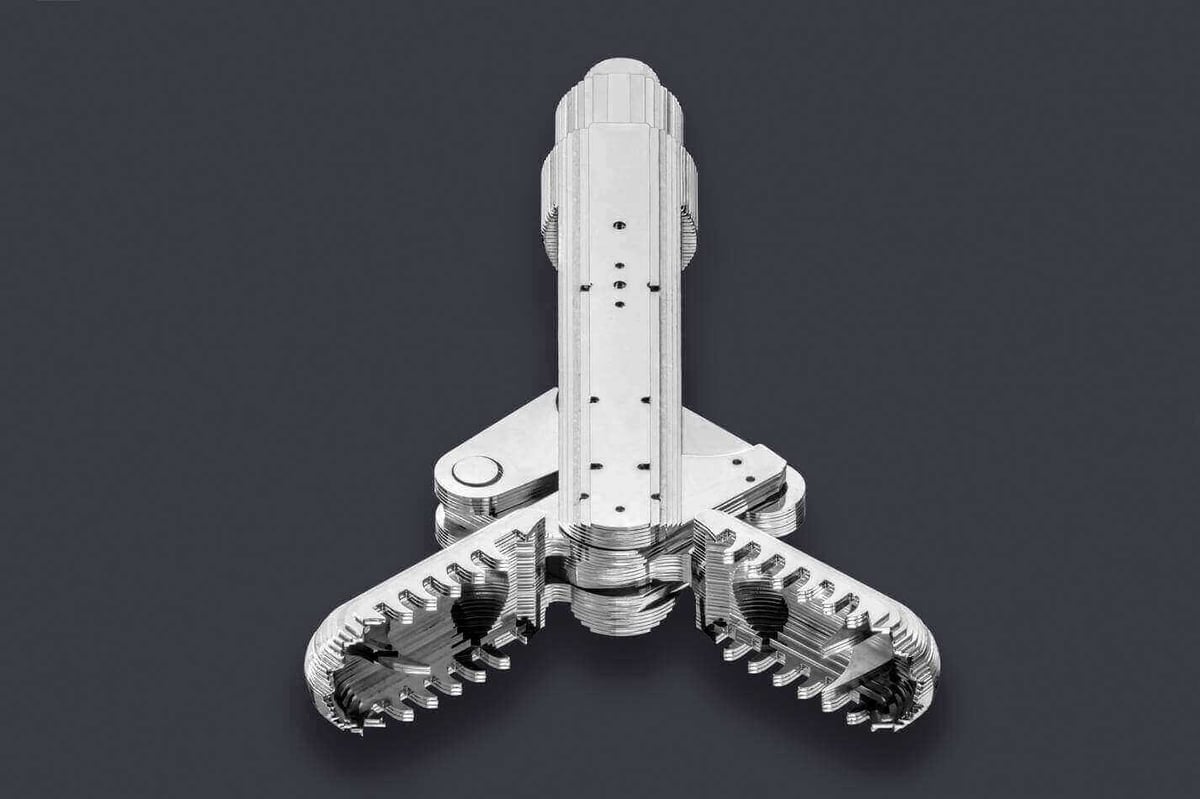Made with 3D printing, the world’s first submillimeter biopsy forceps which could help reliably detect pancreatic cancer for early treatment.
Pancreatic cancer is responsible for about 7% of all cancer deaths, and accounts for about 3% of all cancers in the US. Currently, it’s the fourth-leading cause of cancer-related death in the United States. Scientists estimate that it will surpass breast cancer in 2017.
Because pancreatic cancer is often difficult to detect until it’s at a late stage, it can be much harder to treat than other types of cancer.
However, California-based company Microfabrica have developed a miniscule biopsy forceps which could help detect pancreatic cancer. Microfabrica has teamed up with US Endoscopy to create the world’s first submillimeter biopsy forceps.
Microfabrica hopes that the design of the forceps will improve the reliability of tissue biopsy in the gastrointestinal tract. This includes biopsy of pancreatic cystic lesions too. A reliable biopsy could make a huge difference for discovering and treating pancreatic cancer early.
Eric C. Miller has been working in the medical device industry for many years and is also CEO of Microfabrica. He said:
“US Endoscopy’s micro forceps is an incredibly innovative product with multiple applications. The micro forceps design takes full advantage of our unique capability to print highly complex geometries with ultra-high precision at the submillimeter scale.”
3D Printing Helps Build Submillimeter Biopsy Forceps
Microfabrica’s process is slightly different from regular 3D printing. Although it includes printing complex 3D shapes from digital models, it is enhanced by a semiconductor manufacturing paradigm.
This means that the final product is a precise and micro-scale metal device. The devices can also be produced in commercial volumes and don’t require any assembly.
Microfabrica is working in collaboration with US Endoscopy who create products which help doctors take tissue samples from the gastrointestinal tract. Their missions statement is impressive. For example, they describe themselves as a “prolific designer and supplier of urgently needed, niche diagnostic, therapeutic, and support accessories used in the GI Endoscopy market.”
The benefits of integrating both 3D printing and semiconductor manufacturing processes are that the companies can create microscale solutions. Hopefully, the world’s first submillimeter biopsy forceps will make a big difference in the fight against cancer.
Microfabrica is also known for enabling new levels of product innovation. They already offer breakthrough products and reduce time to market for many industries including aerospace, medical, and electronics.
Source: Press Release
License: The text of "World’s First Submillimeter Biopsy Forceps to Detect Cancer" by All3DP is licensed under a Creative Commons Attribution 4.0 International License.
